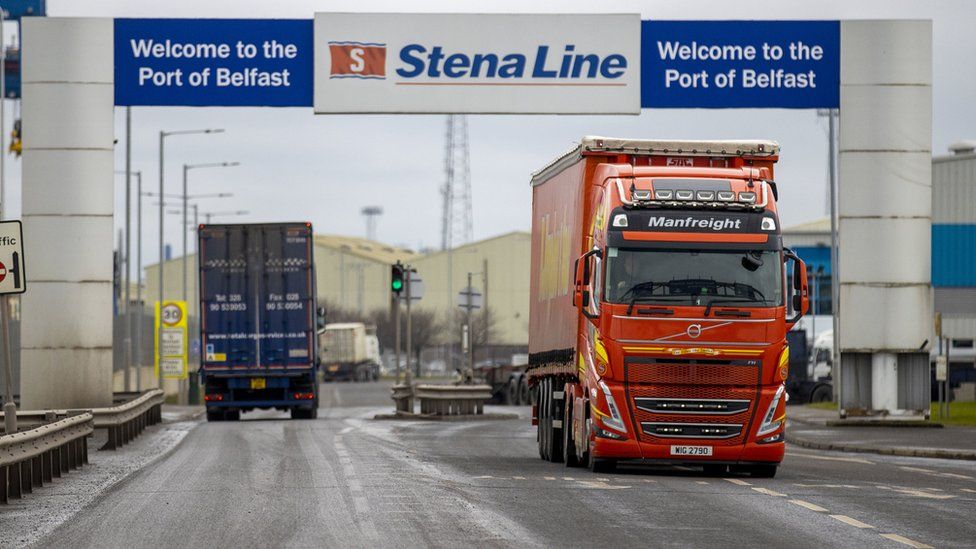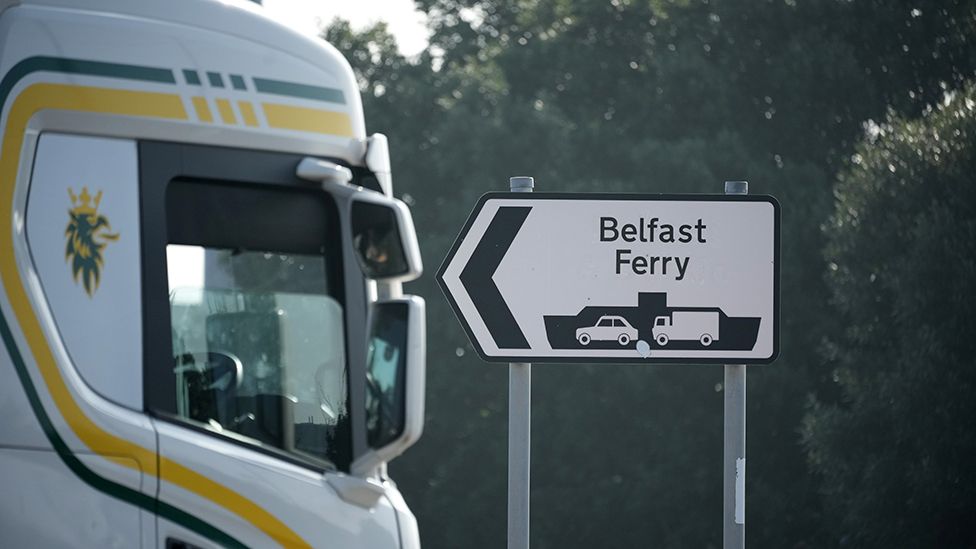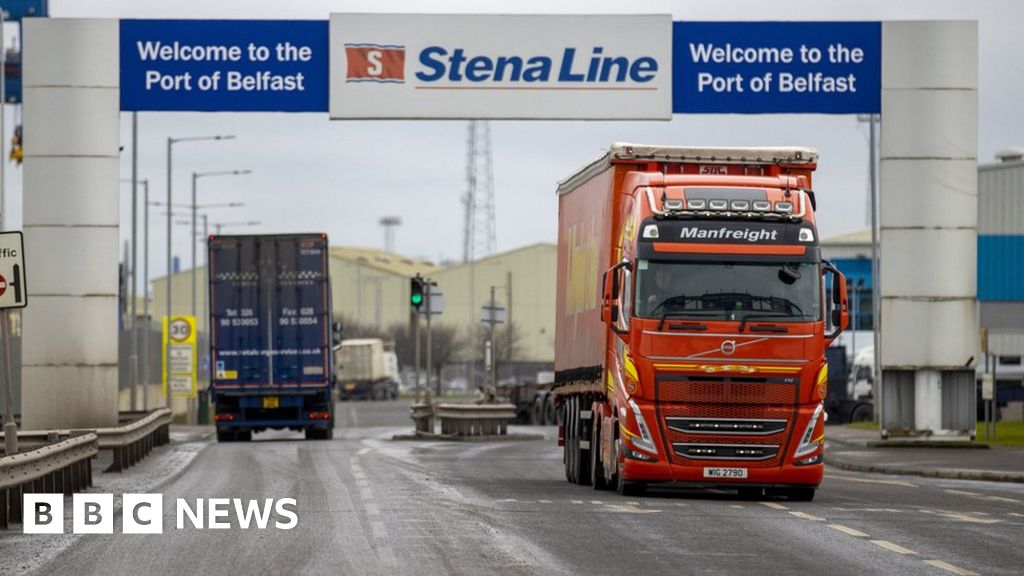
UK Prime Minister Rishi Sunak and President of the European Commission Ursula von der Leyen have announced they have reached a new deal, aimed at fixing post-Brexit problems in Northern Ireland.
The full details of their agreement have just been published, and we’re working to get you a fuller picture of what’s been decided.
Here is we know about the agreement, named the Windsor Framework, so far:
Green lane/red lane
- Goods from Britain destined for Northern Ireland will travel through a new “green lane”, with a separate “red lane” for goods at risk of moving onto the EU
- Products coming into Northern Ireland through the green lane would see checks and paperwork scrapped
- Red lane goods destined for the EU still be subject to normal checks
- Mr Sunak said this would mean food available on the supermarket shelves in Great Britain will be available on supermarket shelves in Northern Ireland.
- New data-sharing arrangements would be used to oversee the new system
- Where smuggling is suspected, some custom checks may still be carried out on green lane goods
- Business moving goods from Northern Ireland to Great Britain would not be required to complete export declarations
- Bans on certain products – like chilled sausages – entering Northern Ireland from Britain would be scrapped
Pets, parcels and medicines
- “Onerous requirements” on moving pets will be removed
- Medicines approved for use by the UK regulator available in Northern Ireland pharmacies and hospitals
- Mr Sunak said that people sending parcels to friends or family or doing online shopping in Northern Ireland will not have to complete customs paperwork
VAT and alcohol duty
- Under the Northern Ireland Protocol, EU VAT rules could be applied in Northern Ireland
- Under the new deal, Mr Sunak says the UK can make “critical VAT” changes which include Northern Ireland
- For example if the government raises or cuts alcohol duty this will apply to pubs in Northern Ireland as well as the rest of the UK, he said
Stormont brake
- Under the protocol, some EU law applies in Northern Ireland, but politicians had no formal way to influence the rules
- New agreement introduces a “Stormont brake” which allows the Northern Ireland Assembly to raise an objection to a new rule
- The process would be triggered if 30 MLAs (representatives in the Stormont Assembly) from two or more parties sign a petition
- 14 day consultation period would follow, after which, if 30 MLAs still support it, there would be a vote in the assembly
- To pass, it would need support from both unionists and nationalist representatives
- The brake cannot be used for “trivial reasons” but reserved for “significantly different” rules
- Once the UK tells the EU the brake has been triggered, the rule cannot be implemented
- It can only be applied if the UK and EU agree.
Related Topics
-
-
6 hours ago

-
This article was originally published by Bbc.co.uk. Read the original article here.
